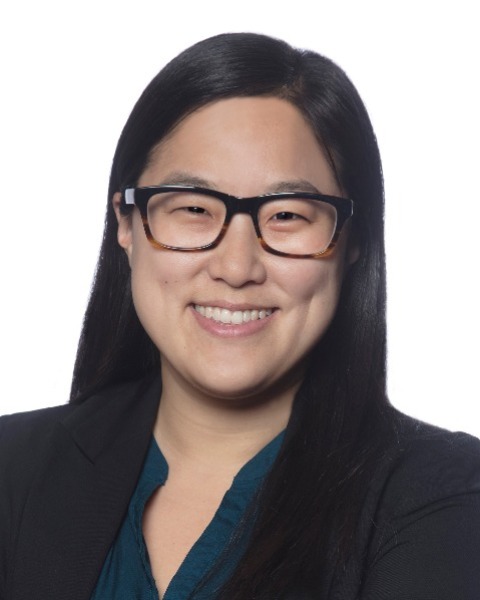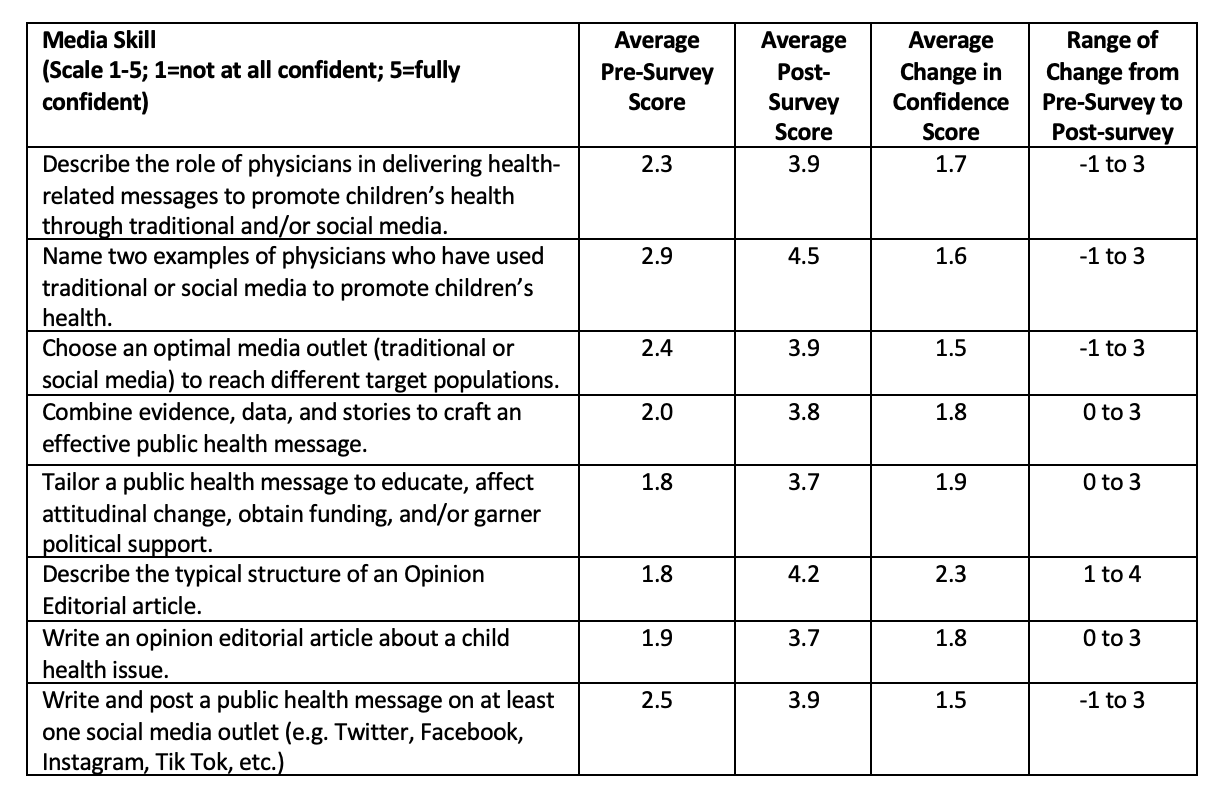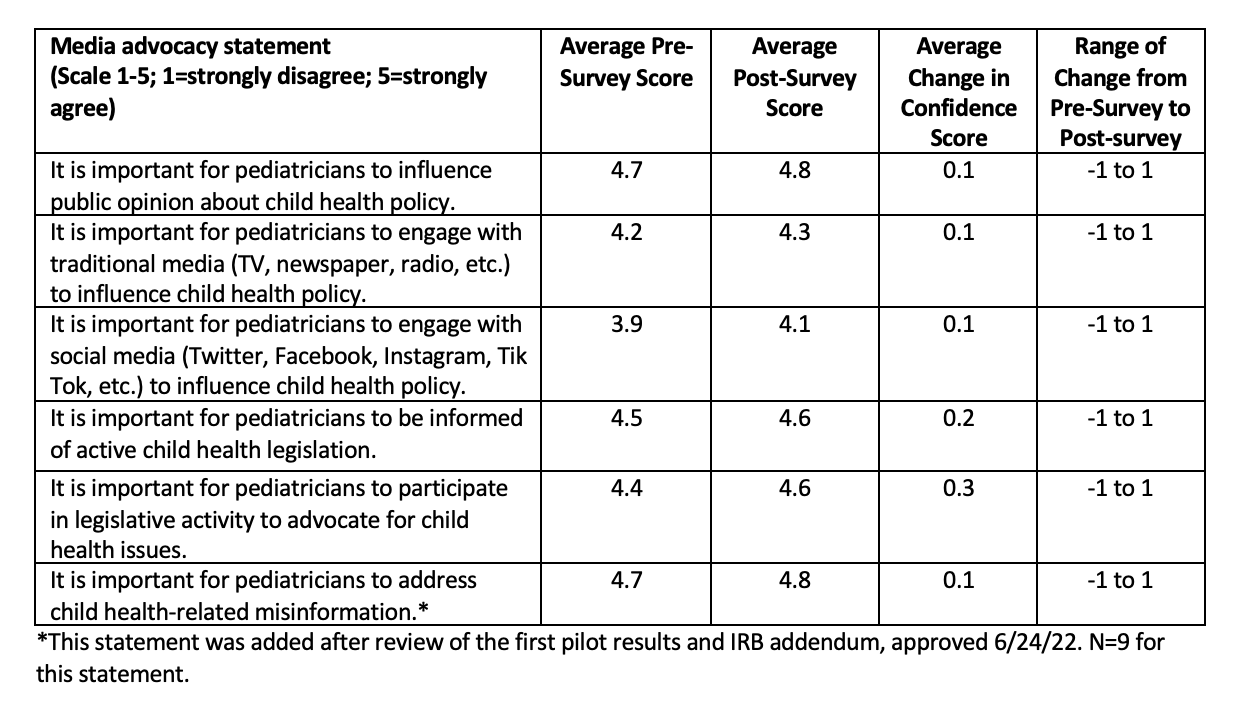Medical Education: Resident
Medical Education 1: Resident 1
456 - Empowering Residents in the Age of Misinformation: Assessment of a Novel Media Advocacy Curriculum for Pediatric Residents
Publication Number: 456.122

Vivien K. Sun, MD, MPhil (she/her/hers)
Clinical Assistant Professor
Stanford University School of Medicine
Stanford University School of Medicine
Stanford, California, United States
Presenting Author(s)
Background:
The pandemic highlighted how health misinformation threatens the health of individuals while undermining public health efforts. In 2021, the US Surgeon General called on health professionals to combat misinformation by sharing accurate information through technology and media platforms. Therefore, a novel 2-week media advocacy curriculum was developed to train pediatric residents to craft, deliver, and promote accurate child health-related media messages.
Objective:
To assess pediatric residents’ self-perceived media communication skills, attitudes towards pediatrician participation in media advocacy, and satisfaction after a 2-week media advocacy curriculum.
Design/Methods:
We surveyed residents, who completed the media advocacy curriculum between March and November 2022, using anonymous, linked pre/post-surveys. The surveys, designed by literature review and expert consensus, asked respondents to rate their confidence with media advocacy skills (8 items) and their level of agreement about pediatrician involvement in media advocacy (6 items), both utilizing 5-point Likert scales. To evaluate satisfaction with the rotation, residents were asked if the rotation should continue next year. Responses were analyzed using descriptive statistics. The study was approved by our institution’s IRB.
Results:
All residents (n=19) who participated in the media advocacy rotation completed pre/post surveys. Participants were evenly divided between second and third years, with 12 participants identifying as female (63%), and 26% anticipating practicing in General Pediatrics and 74% in Pediatric subspecialties. All items measuring media advocacy skills increased, with average scores shifting 1.5-2.3 on a 5-point Likert scale (Table 1). Respondents’ attitudes demonstrated a strong recognition of the importance of physicians engaging in media advocacy both before and after the rotation (Table 2). The vast majority of respondents (89%) reported the rotation should continue next year.
Conclusion(s):
In an initial pilot, pediatric residents at one program who completed a novel 2-week media advocacy rotation at baseline recognized the importance of pediatricians in media advocacy, but had increased confidence in media advocacy skills after the rotation. Residents felt the rotation should continue in subsequent years. Next steps include continuing to study this rotation and assessing the engagement of trainees with media advocacy six months after completion of the rotation.

